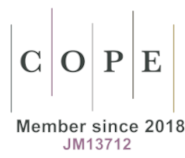Iranian–Turkish Relations in a Changing Middle East
DOI:
https://doi.org/10.18778/1641-4233.21.06Słowa kluczowe:
Iran, Turkey, Middle East, Syria, ISIS, Kurdish issue, Russia, Erdogan, KhameneiAbstrakt
After the outbreak of the Arab Spring and, above all, the intensification of the Syrian crisis with Ankara starting to engage in a political confrontation with Assad’s Syria, Tehran tried to exploit its historic strategic alliance with Damascus in a search for projecting its influence abroad. As Turkey has been facing more and more hardships and experiencing political isolation, Iran seemed to be more comfortable with its external environment, benefiting from a convergence of interests with Russia. However, the advent of ISIS created further disarray in the region, presenting opportunities for countries to cooperate especially for Erdogan’s new Turkey which was still focused on fighting Kurds.
Pobrania
Bibliografia
Akbarzadeh, S., Iran and Daesh: The Case of a Reluctant Shia Power, Middle East Policy, vol. XXII.3 (2015), pp. 44–54.
Zobacz w Google Scholar
Barkey, H.J., Turkey’s Syria Predicament, “Survival,” no. 56.6 (2015), pp. 113–134.
Zobacz w Google Scholar
Barkey, H.J., Turkish–Iranian Competition after the Arab Spring, “Survival,” no. 54.6 (2014), pp. 139–162.
Zobacz w Google Scholar
Barzegar, K., Iran and The Shiite Crescent: Myths and Realities, “The Brown Journal of World Affairs,” vol. XV.1 (2008), pp. 87–99.
Zobacz w Google Scholar
Benjio, O., The Turkish–Israeli Relationship. Changing Ties of Middle Eastern Outsiders. New York: Palgrave Macmillan, 2004.
Zobacz w Google Scholar
Cagaptay, S., Islam, Secularism, and Nationalism in Modern Turkey. Who is a Turk? London and New York: Routledge, 2006.
Zobacz w Google Scholar
DOI: https://doi.org/10.4324/9780203968925
Davutoglu, A., Turkey’s Zero-Problems Foreign Policy, “Foreign Policy” (May, 2010). Web. 29 March 2017, http://foreignpolicy.com/2010/05/20/turkeys-zero-problems-foreign-policy
Zobacz w Google Scholar
Devine, J., Iran versus ISIL, “Insight Turkey,” no. 17.2 (2015), pp. 21–34.
Zobacz w Google Scholar
Ehteshami, A., and Hinnebusch, R., Syria and Iran. Middle powers in a penetrated regional system. London: Routledge, 1997.
Zobacz w Google Scholar
Ehteshami, A. and Suleyman, E., Turkey’s growing relations with Iran and Arab Middle East, “Turkish Studies,” no. 12.4 (2011), pp. 643–662.
Zobacz w Google Scholar
Gunter, M.M., Reopening Turkey’s Closed Kurdish Opening?, “Middle East Policy,” vol. XX.2 (2013), pp. 88–98.
Zobacz w Google Scholar
Hale, W., Turkish Foreign Policy. 1774–2000. London and Portland: Frank Cass Publishers, 2000.
Zobacz w Google Scholar
Hale, W. and Ozbudun, E., Islamism, Democracy and Liberalism in Turkey. The case of the AKP. London and New York: Routledge, 2010.
Zobacz w Google Scholar
DOI: https://doi.org/10.4324/9780203873359
Holbrook, D., Al-Qaeda and the Rise of ISIS, “Survival,” no. 57.2 (2015), pp. 93–104.
Zobacz w Google Scholar
ICG (International Crisis Group). Turkey’s Crisis over Israel and Iran, Europe Report N. 208, 2010.
Zobacz w Google Scholar
Israel and Turkey reach deal to restore relations, Al Jazeera (June, 2016). Web. 29 March 2017, http://www.aljazeera.com/news/2016/06/israel-turkey-reach-deal-restore-relations-160626190909435.html
Zobacz w Google Scholar
Johnston, Ch., Isis militants release 49 hostages taken at Turkish consulate in Mosul, “The Guardian” (September, 2014). Web. 29 March 2017, https://www.theguardian.com/world/2014/sep/20/isis-releases-hostages-turkish-consulate-mosul
Zobacz w Google Scholar
Karacasulu, N. and Askar Karakir, I., Iran-Turkey Relations in the 2000s: Pragmatic Rapprochement, “Ege Academic Review,” no. 11.1 (2011), pp. 111–119.
Zobacz w Google Scholar
Karmon, E., Al-Qa’ida and the War on Terror after the War in Iraq, “MERIA – Middle East Review of International Affairs,” no. 10.1 (2006), pp. 1–22.
Zobacz w Google Scholar
Kavalek, T., From al-Qaeda in Iraq to Islamic State: The Story of Insurgency in Iraq and Syria in 2003–2015, “Alternatives – Turkish Journal of International Relations,” no. 14.1 (2015), pp. 1–32.
Zobacz w Google Scholar
Larrabee, S.F., Turkey and the Changing Dynamics of the Kurdish issue, “Survival,” no. 58.2 (2016), pp. 67–73.
Zobacz w Google Scholar
Milani, M., Iran and Russia’s uncomfortable alliance. Their cooperation in Syria in context, Foreign Affairs (August, 2016). Web. 29 March 2017, https://www.foreignaffairs.com/articles/iran/2016–08–31/iran-and-russias-uncomfortable-alliance
Zobacz w Google Scholar
Mohammed, I., Turkey and Iran Rivalry on Syria, “Alternatives – Turkish Review of International Affairs,” no. 10.2–3 (2011), pp. 65–77.
Zobacz w Google Scholar
Morelli, M. and Pischedda, C., The Turkey-KRG Energy Partnership: Assessing its Implications, “Middle East Policy,” vol. XXI.1 (2014), pp. 107–121.
Zobacz w Google Scholar
Muce-Gocek, F., The Transformation of Turkey. Redefining State and Society from the Ottoman Empire to the Modern Era. London and New York: I. B. Tauris, 2011.
Zobacz w Google Scholar
Ozcan, N.A. and Ozdamar, O., Uneasy Neighbors: Turkish-Iranian Relations Since the 1979 Islamic Revolution, “Middle East Policy,” vol. XXVI.3 (2010), pp. 101–117.
Zobacz w Google Scholar
Peerzada, T.A., U.S. –Turkey Relationship and Syrian Crisis, “Alternatives – Turkish Journal of International Relations,” no. 14.4 (2015), pp. 11–14.
Zobacz w Google Scholar
Ramazani, R.K., Iran’s Foreign Policy: Independence, Freedom and the Islamic Republic, Iran’s Foreign Policy. From Khatami to Ahmadinejad. Eds. A. Ehteshami and M. Zweiri. Reading: Itacha Press, 2008.
Zobacz w Google Scholar
Robins, P., Suits and Uniforms. Turkish Foreign Policy Since the Cold War. London: Hurst & Company, 2003.
Zobacz w Google Scholar
Sevi, S., Turkey’s Twist and Turns on Syria, “Middle East Review of International Affairs,” no. 18.1 (2014), pp. 1–7.
Zobacz w Google Scholar
Sinkaya, B., Rationalization of Turkey-Iran Relations: Prospects and Limits, “Insight Turkey,” no. 14.2 (2012), 137–156.
Zobacz w Google Scholar
Turkey supports Saudi mission in Yemen, says Iran must withdraw. France24 (March, 2015). Web. 29 March 2017, http://www.france24.com/en/20150326-turkey-support-saudi-yemen-erdogan-interview-france-24/
Zobacz w Google Scholar
Van Wilgenburg, W., Rival Kurdish Parties Battle for Power in Syria, Al-Monitor (May, 2014). Web. 29 March 2017, http://www.al-monitor.com/pulse/ru/originals/2014/05/kurdistan-kdp-pyd-erbil-barzani-ocalan-syria.html
Zobacz w Google Scholar
Vladimir Putin Receives a Letter from President of Turkey Recep Tayyip Erdogan. Kremlin.ru (June, 2016). Web. 29 March 2017, http://en.kremlin.ru/events/president/news/52282
Zobacz w Google Scholar
Yavuz, H.M., Secularism and Muslim Democracy in Turkey. Cambridge: Cambridge University Press, 2009.
Zobacz w Google Scholar
DOI: https://doi.org/10.1017/CBO9780511815089
Yavuz, H.M. and Ozcan, N.A., The Kurdish Question and Turkey’s Justice and Development Party, “Middle East Policy,” vol. XIII.1 (2006), pp. 102–119.
Zobacz w Google Scholar
Yavuz, H.M. and Ozcan, N.A., Turkish Democracy and the Kurdish Question, “Middle East Policy,” vol. XXII.4 (2015), pp. 73–87.
Zobacz w Google Scholar
Pobrania
Opublikowane
Jak cytować
Numer
Dział
Licencja
Prawa autorskie (c) 2018 International Studies. Interdisciplinary Political and Cultural Journal

Utwór dostępny jest na licencji Creative Commons Uznanie autorstwa – Użycie niekomercyjne – Bez utworów zależnych 4.0 Międzynarodowe.

















